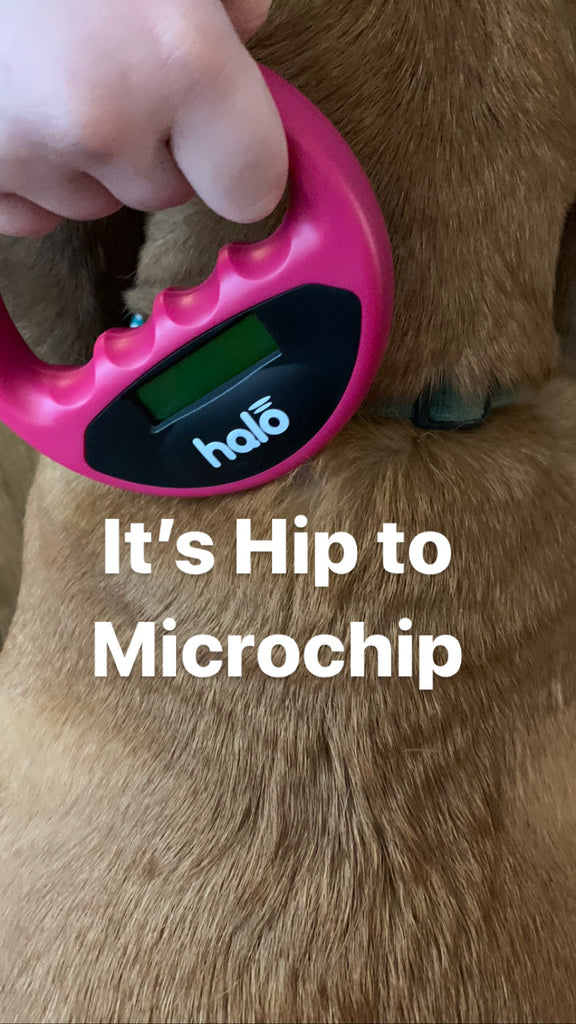
What’s a microchip you say? Well, I, Rex, all my siblings, and many of doggy daycare buddies at The Hipster Hound are microchipped. A microchip is a radio-frequency identification transponder that carries a unique identification number and is roughly the size of a grain of rice. And no, it doesn’t hurt too much. Just like getting a shot! And we don’t even notice it for the rest of our lives. I’ve heard that one in three pets become lost at some point in their lives, so in honor of National Microchipping Month, I’ll spell out the details of microchips for you humans and their importance for every pet.
What Is a Microchip?
When the microchip is scanned by a vet or shelter, it transmits the ID number. There’s no battery, no power required, and no moving parts. The microchip is injected under the loose skin between the dog’s shoulder blades and can be done in the vet’s office. It’s no more invasive than a vaccination!
Gotta Register It!
However, the unique identifier in the chip won’t do any good unless it is registered with a national pet recovery database. Pet parents will want to use a recovery service that has access to different microchip databases and technology. When registering the dog’s microchip, humans should enter all relevant contact information. It’s a good idea to include both landline and cell phone numbers for everyone in the household who is responsible for the care of the dog. Dog parents would be devastated to miss a call telling them that their canine companion has been found. Remember to keep all contact information up to date with the registry, too.
Not a GPS Device
But humans need to understand that a microchip is NOT a GPS tracking device. Those are sold separately and cannot be implanted the way a microchip is. GPS devices and microchips aren’t substitutes for each other. They’re complementary, and both are useful in locating a lost dog in different ways. A GPS may tell dog parents where he is, but it can’t provide contact information to those nearby that would help return him home.
GPS devices also require batteries and can be lost, like a collar or tags. Microchips, because they’re inserted into a dog’s skin, are permanent. While they can’t guide a human to a dog’s actual location, they DO provide a way for dog parents to be contacted, by any veterinarian or shelter, if their pup is brought in.
Great Success
Pets with microchips are up to 20 times more likely to be reunited with their owners. It’s a simple procedure, it’s not expensive, and the risks are minimal. So, all pet parents should take this opportunity to have their dogs microchipped because the thought of losing him forever is too much to bear!
The trained staff at The Hipster Hound have access to microchip readers, so if anyone brings in a lost pet, they can use the reader to pull up the parents’ contact info to reunite dog and human again! As always, if you have any questions about microchips, my mom, Tonya, and the staff at The Hipster Hound can give you any information you need and help guide you in the right direction!
Need to be microchipped? Well, you’re in luck! The Hipster Hound at the Diamond Causeway location hosts a monthly vet clinic with Dr. Martin. Stop by the first Saturday every month between 1:00 and 4:00 p.m. to get your microchip on!
Woof,
Rex, The Original Hipster Hound

Leave a comment